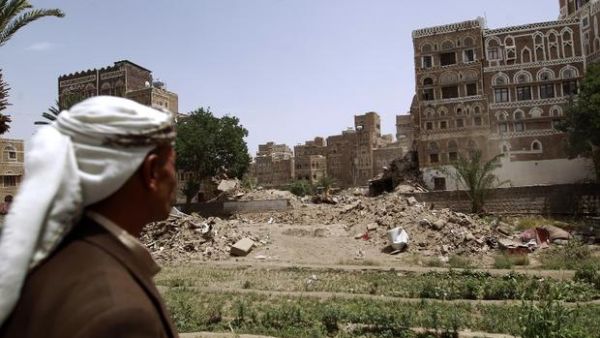As Sanaa becomes Aleppo
Sana'a is without a doubt one of the best preserved traditional cities in the entire Middle East. I have walked the streets of Sana'a since 1978, marvelling at the beauty and simplicity of this peaceful city. If you want to see its old splendour, look at this 1971 film by the Italian director Pier Paolo Pasolini. The city has expanded exponentially since then, as many rural Yemenis came to the capital and left their farms. As the world stands by in apathy to the humanitarian crisis in Yemen, where civilians are mutilated and killed every day by the bombing, we may witness the Old City, a UNESCO heritage site, go the way of Aleppo.
Continue reading on MENA Tidningen
14 years after 9/11, US, Israel tempted to ally with al-Qaeda in Syria
The Jabhat al-Nusra or Support Front is one of the major rebel groups in Syria, holding extensive territory in the hinterland of cities like Homs and Aleppo and in the province of Idlib. The Support Front is just al-Qaeda. It has announced allegiance to Ayman al-Zawahiri, the leader of . . . al-Qaeda and one of the figures who planned out and helped implement 9/11 (al-Zawahiri, an Egyptian physician from an elite family in Ma’adi, Cairo, was Bin Laden’s number 2 and is now number 1.)
Continue reading on Informed Comment
Egypt's first all-women pink taxi: does segregation curb sexual harassment?
Sexual harassment is among Egypt’s most persistent issues which women and girls have had to endure at growing rates in the recent times. According to a study conducted by the UN Women back in 2013, 99.3 per cent of Egyptian women confirmed that they were victims of sexual harassment. Among the respondents, 82.6 per cent stated that they do not feel safe leaving their homes.
In order to combat the outrageous growth of the phenomenon, several initiatives and NGOs have delved into the various means of curbing sexual harassment. Among the latest initiatives that are soon to come into action is Pink Taxi –a taxi service created solely for women with women drivers.
Continue reading on Egyptian Streets







